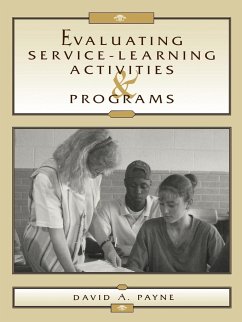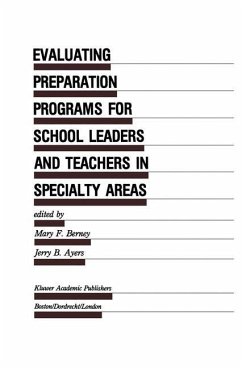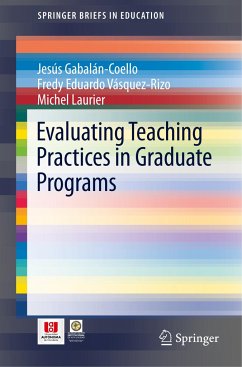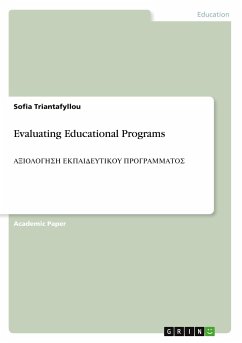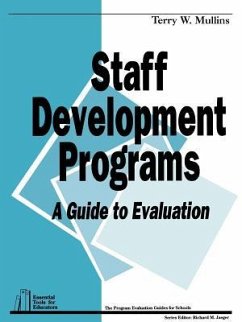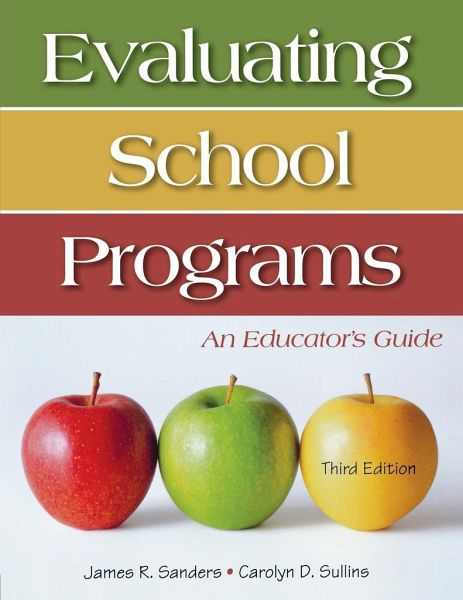
Evaluating School Programs
An Educator's Guide
Versandfertig in 1-2 Wochen
29,99 €
inkl. MwSt.

PAYBACK Punkte
15 °P sammeln!
Updated from the bestselling second edition, this resource provides concise, yet comprehensive coverage of school programs evaluation in a highly usable format. Providing examples designed to help the reader develop competence and confidence in program evaluation, it takes the reader through the five tasks of school program evaluation: o Focusing the evaluation o Collecting information o Organizing and analyzing information o Reporting information o Administering the evaluation The author shows how to successfully manage the many logistical, budgetary, and scheduling problems encountered, and ...
Updated from the bestselling second edition, this resource provides concise, yet comprehensive coverage of school programs evaluation in a highly usable format. Providing examples designed to help the reader develop competence and confidence in program evaluation, it takes the reader through the five tasks of school program evaluation: o Focusing the evaluation o Collecting information o Organizing and analyzing information o Reporting information o Administering the evaluation The author shows how to successfully manage the many logistical, budgetary, and scheduling problems encountered, and provides tips for dealing with school politics, ethical considerations, and interpersonal relations.






